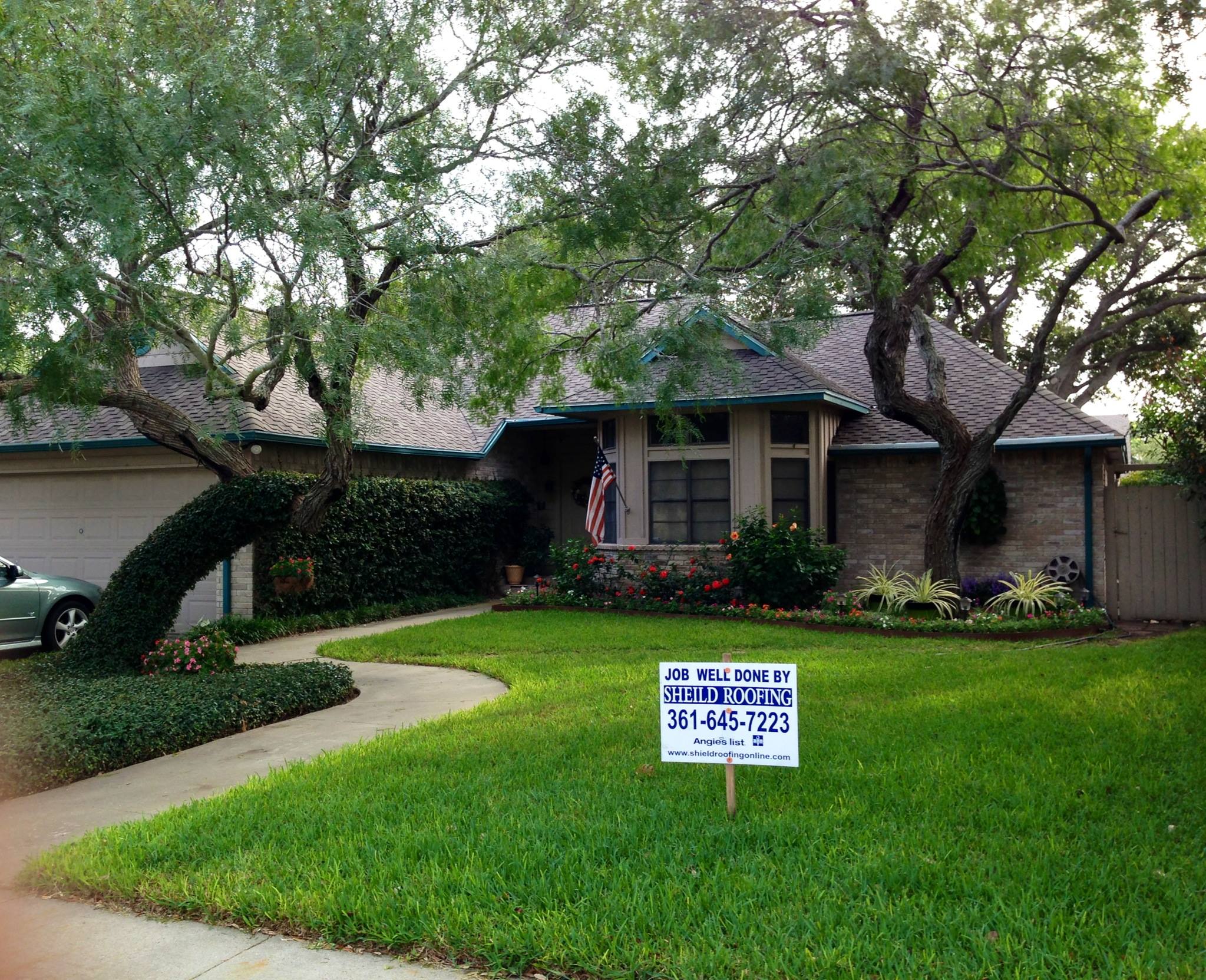Is there a specific license or permit required for Roofing Repair and Installation?
by siteadmin

Is there a specific license or permit required for Roofing Repair and Installation?
Roof installation and roof repair are important aspects to maintaining a functional and safe home or building. Before embarking on a roofing project, you should be aware of the laws and regulations that govern it.
The licenses and permits are essential for the installation and repair of roofs. If you fail to meet these requirements, you may be subject to legal penalties, fines and even the shutdown of your project.
Permits and licences are important because they guarantee that live oak roofing projects will be carried out in a safe manner and according to local building codes. These requirements protect building occupants and homeowners from possible hazards that could arise from substandard roof work.
This article will discuss the permits and licenses that are required for roof installation and repair. We will also explore how to get them and what safety regulations and best practice must be followed in order to complete a roofing project successfully.
The Key Takeaways
To comply with building codes and safety standards, live oak roofing installation and repairs require licenses and permits.
The location of the property will determine the specific permit and license requirements. This may also include licenses for the contractors who perform the work.
If you fail to obtain the necessary permits and licences, it can lead to legal penalties, fines and even project closures.
Permits and licenses are important for ensuring work is safe, legal and high-quality, as well as demonstrating compliance with building codes and safety regulations.
Understanding the importance of permits and licenses
It is important to obtain the necessary permits and licenses in order to ensure compliance with local standards and regulations, and promote safety and quality when it comes time for roofing installation and repairs. These permits and licences are issued to roofing contractors by local government agencies. They are intended to ensure compliance with safety and building regulations.
If a contractor fails to get the required permits and licenses, they may be subjected to fines and penalties. They could even lose their business license. It is vital to know the local permit and licensing requirements in order to avoid negative consequences.
It is important to research the local codes and regulations that govern roof installation and repair. Also, you should look into the permits and licenses needed for this work. Obtaining the right permits and licenses will ensure that roofing contractors' work is safe, legal and high-quality.
Find out what permits and licenses are required in your area
It is vital to check the local regulations before starting any work on your roof. Permits and licenses for roof installation or repair vary depending on where the property is located.
Check with your local building department for specific requirements in the area where the work is to be done. Permits are generally required for any work on a building that will affect its structural integrity. This includes roof installation and repair work.
Contractors performing the work may also need a license. To avoid fines and delays, it is essential to know the permits and licenses required in advance. After determining the necessary requirements, the next step will be to apply for the required permits and licenses.
You can apply for the necessary permits and licenses
It is important to apply for authorizations before you begin roofing work. This will ensure that you comply with local regulations, and avoid any fines or delays. Permits and licenses are issued in different ways depending on where you live, the type of roof work and the authorities that govern.
First, you should research the local requirements and regulations. You can do this by contacting your local building department, or using online resources.
The next step in the process is to submit the application. It usually involves filling out an application form, paying the fees and providing documents such as insurance proof, contractor licenses and building plans.
To avoid delays, it is essential that all information and documentation are provided in a timely and accurate manner. After the permits and licences are obtained, and work begins, it's important to adhere to safety regulations and follow best practices in order to minimize any risks or accidents.
Follow safety regulations and best practices
In the roofing industry, falls are responsible for 79% worker deaths. Roofing contractors are required to comply with the OSHA safety regulations in order to protect their employees and public.
Here are some safety regulations and best practices for roofing contractors:
– Provide fall protection equipment for their employees such as safety harnesses or guardrails.
– Teach their employees how to use fall protection equipment properly and safely work on roofs.
– Hold regular safety meetings in order to review safety procedures, and to identify potential hazards.
By adhering to these safety regulations, roofing contractors are able to prevent workplace accidents, protect their employees, and keep the public safe.
Roofing contractors are required to keep records, and to obtain final inspections in order to meet local building codes.
Maintain records and obtain final inspections
It is important to ensure that contractors are following local building codes by keeping records and getting final inspections. Contractors can prove their compliance to safety regulations, local building codes, and best practices by keeping accurate records. These records can be used for future inspections or repairs. A final inspection is also a vital step in the process of roofing installation or repairs. Local building inspectors conduct final inspections to verify that roofing work is completed according to local building codes. The roofing contractor will usually schedule this inspection. Failure to pass can result in penalties, fines and even legal action.
The following table highlights the benefits and requirements of these practices.
Benefits
| — | — |
Demonstrates compliance with safety regulations and building codes
Provides a reference for future repairs or inspections
Helps avoid fines, penalties, and legal action
The process of installing or repairing a roof is not complete without keeping accurate records and getting final inspections. Contractors can follow these requirements to ensure their work is done safely, legally and in compliance with local building codes.
FAQs
What is the cost of a roofer's permit or license?
The cost to obtain a roofing license or permit varies depending on where you live and what type of license or permit is required. For specific information, it is best to contact local authorities or licensed roofing contractors.
Does a homeowner need to hire a professional for a roof permit or license?
It is possible to get a roof permit or license as a homeowner, but it is usually recommended that a professional take care of the process. It is important to ensure that the installation or repair meets all safety and regulatory standards.
How long is it usually required to get a roofer's permit or license in the UK?
Depending on state or local laws, the time required to obtain a roofer's permit or license can vary. Check with the appropriate authorities to find out about specific requirements and processing time.
Is there an exemption or exception to the license and permit requirements for roof installation or repairs?
Local regulations may determine whether or not there are any exemptions from the requirements of a permit or license for roof installation or repairs. It is vital to comply with safety and building codes for any roofing project.
What happens when a roofer does not possess the required permits or licenses
If a contractor does not have the required permits or licenses they could face legal consequences, such as fines and suspension of their business. To ensure quality and safety in roofing projects, it is essential to follow regulations. It is better to be safe than sorry.
The conclusion of the article is:
Obtained permits and licenses are crucial to ensure safety and conformity with regulations. If you fail to comply with the law, it could have serious legal implications and put public safety at risk.
Research and understanding the requirements of your locality is essential. You should also follow the correct procedures to obtain permits and licenses. In addition, following safety regulations and using best practices during the installation or repairs process can help reduce potential risks.
In essence, getting permits and licenses as well as adhering to the regulations is similar to building a strong roof. It requires a firm foundation and attention to details to ensure safety.
Shield Roofing
21750 Hardy Oak Blvd STE 102-110 San Antonio, TX 78258
(253) 651-3106
Is there a specific license or permit required for Roofing Repair and Installation? Roof installation and roof repair are important aspects to maintaining a functional and safe home or building. Before embarking on a roofing project, you should be aware of the laws and regulations that govern it. The licenses and permits are essential for…
Recent Posts
- New Orleans Concreters Advocates for Stamped Concrete Driveways as the Ultimate Choice for Durability and Style
- Gutter Installation Jacksonville FL: Revolutionizing Home Protection
- A. Parker Contracting Emerges as Premier Roofer in Delaware: Serving Newark and Wilmington Areas with Excellence
- The Comprehensive Guide to Gutters in Jacksonville FL
- The Comprehensive Guide to Gutters in Jacksonville FL
